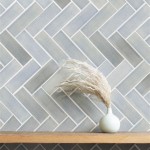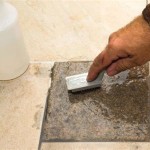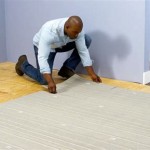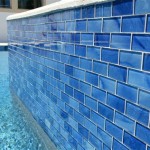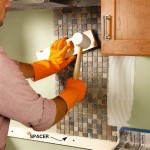Granite And Tile: Durable Flooring Solutions For Your Homestead
Selecting appropriate flooring for a homestead presents a unique set of challenges. The demands placed on flooring within a self-sufficient living environment differ significantly from those of a typical suburban home. Homestead flooring must withstand heavy foot traffic, potential exposure to moisture and dirt, and the wear and tear associated with agricultural activities. Longevity, ease of maintenance, and resistance to damage are paramount considerations. Granite and tile emerge as strong contenders for durable homestead flooring, offering a compelling combination of resilience, aesthetic appeal, and practical benefits.
This article will explore the properties of granite and tile as flooring materials, detailing their advantages and disadvantages in the context of homestead living. We will address key considerations such as durability, maintenance, cost, installation, and the impact of each material on the overall homestead environment. Understanding these factors is crucial for homesteaders seeking to make informed decisions about their flooring investments.
Granite Flooring: Strength and Timelessness
Granite is an igneous rock formed from the slow cooling of magma beneath the Earth's surface. Its composition primarily consists of quartz, feldspar, and mica, giving it exceptional hardness and density. These characteristics translate directly into remarkable durability as a flooring material. Granite is highly resistant to scratches, stains, and impacts, making it well-suited for high-traffic areas and environments where heavy objects are frequently moved.
One of the most significant advantages of granite is its inherent resistance to moisture. Unlike porous materials such as wood or certain types of natural stone, granite is virtually impermeable when properly sealed. This makes it an excellent choice for areas prone to spills or high humidity, such as kitchens, bathrooms, and mudrooms. Its resistance to moisture also inhibits the growth of mold and mildew, contributing to a healthier indoor environment. This is particularly crucial in homesteads where reliance on natural ventilation may increase exposure to moisture.
The aesthetic appeal of granite is undeniable. Available in a wide range of colors, patterns, and finishes, granite can complement various interior design styles. Its natural variations and unique veining patterns create a sense of sophistication and timelessness. While polished granite offers a glossy, reflective surface, honed or textured finishes provide a more rustic and slip-resistant option, suitable for areas where safety is a primary concern. The initial cost of granite flooring can be higher than other options; however, its longevity and minimal maintenance requirements can offset these initial expenses over the long term. Investing in a durable flooring solution like granite can save money in the long run by reducing the need for frequent repairs or replacements.
Installation of granite flooring typically requires professional expertise. The weight and hardness of granite necessitate specialized tools and techniques. However, proper installation is crucial for ensuring the flooring's long-term performance and preventing issues such as cracking or uneven settling. Once installed, granite flooring requires minimal maintenance. Regular sweeping or vacuuming to remove debris is essential, and occasional cleaning with a pH-neutral cleaner will help maintain its luster. Sealing granite periodically is recommended to further enhance its stain resistance and prevent water damage.
Granite's thermal properties also make it a suitable choice for homesteads utilizing radiant floor heating systems. Its density allows it to retain heat effectively, providing consistent and comfortable warmth. This can contribute to energy efficiency and reduce reliance on alternative heating sources. Furthermore, granite's thermal mass can help regulate indoor temperatures, keeping the home cooler in the summer months.
Tile Flooring: Versatility and Affordability
Tile flooring encompasses a wide variety of materials, including ceramic, porcelain, and stone. Each type of tile offers unique characteristics and advantages, making it a versatile option for homestead flooring. Ceramic tile is a popular choice due to its affordability, durability, and design flexibility. Porcelain tile, known for its density and water resistance, is a premium option suitable for high-traffic areas and moisture-prone environments.
Ceramic tile is manufactured by firing clay at high temperatures. The resulting material is relatively hard and durable, making it resistant to scratches and stains. Ceramic tile is also available in a vast array of colors, patterns, shapes, and sizes, allowing for creative design possibilities. From simple, solid-colored tiles to intricate mosaic patterns, ceramic tile can be customized to suit any aesthetic preference. The cost of ceramic tile is generally lower than that of porcelain or natural stone, making it an attractive option for budget-conscious homesteaders.
Porcelain tile is produced using a denser clay and fired at even higher temperatures than ceramic tile. This results in a material that is significantly stronger, more water-resistant, and more durable. Porcelain tile is classified as either glazed or unglazed. Glazed porcelain tile has a protective coating that enhances its stain resistance and ease of maintenance. Unglazed porcelain tile, also known as through-body porcelain, has a consistent color and pattern throughout the tile, making it less susceptible to chipping or scratching. Porcelain tile is an excellent choice for areas subject to heavy foot traffic, moisture, or extreme temperatures.
Natural stone tiles, such as slate, travertine, and limestone, offer a unique and elegant aesthetic. Each type of stone has its own distinct color variations and textures, adding character and warmth to any space. However, natural stone tiles typically require more maintenance than ceramic or porcelain tiles. They are often more porous and susceptible to staining, requiring periodic sealing to protect them from moisture and dirt. The cost of natural stone tiles can also be higher than that of other tile options.
The installation of tile flooring typically involves applying a layer of mortar to a prepared subfloor and then setting the tiles in place. Grout is then applied to fill the spaces between the tiles, providing a watertight seal. Proper installation is essential for ensuring the longevity and performance of tile flooring. While DIY installation is possible, professional installation is often recommended, especially for complex patterns or large areas. Regular cleaning with a mild detergent and water is sufficient for maintaining tile flooring. Grout should be sealed periodically to prevent staining and mildew growth.
Tile flooring, particularly ceramic and porcelain, is also compatible with radiant floor heating systems. The thermal conductivity of tile allows heat to transfer efficiently, providing comfortable and consistent warmth. This can be a significant advantage in homesteads seeking to reduce their reliance on conventional heating systems.
Key Considerations for Homestead Flooring
Several factors should be considered when selecting flooring for a homestead environment. Durability is paramount, as homestead flooring must withstand heavy use and potential exposure to the elements. Materials such as granite and porcelain tile offer excellent resistance to scratches, stains, and impacts, ensuring long-term performance.
Maintenance is another critical consideration. Homesteaders often have limited time for household chores, so flooring that is easy to clean and maintain is essential. Granite and tile are both relatively low-maintenance options, requiring only regular sweeping and occasional cleaning with a mild detergent. Sealing the floor periodically is recommended to further enhance its stain resistance and prevent water damage, especially for natural stone tiles.
Cost is an important factor for many homesteaders. Granite can be a more expensive option upfront, but its longevity and minimal maintenance requirements can offset these costs over time. Ceramic tile is a more affordable option, but it may not be as durable as granite or porcelain tile. Porcelain tile offers a good balance of durability and affordability, making it a popular choice for many homesteads. The cost of installation should also be considered, as professional installation can add to the overall expense.
Aesthetics play a role in creating a comfortable and inviting homestead environment. Granite and tile are available in a wide range of colors, patterns, and finishes, allowing homesteaders to choose options that complement their personal style and décor. The choice of flooring can also impact the overall feel of a space, with lighter colors creating a more open and airy atmosphere and darker colors adding warmth and sophistication.
Finally, safety should be a primary consideration. Slip-resistant flooring is essential, especially in areas prone to moisture. Textured finishes on granite and tile can enhance traction and reduce the risk of falls. The use of rugs or mats in high-traffic areas can also provide added safety.
By carefully considering these factors, homesteaders can select flooring that is both durable and aesthetically pleasing, creating a functional and comfortable living environment that meets the unique demands of their self-sufficient lifestyle. Granite and tile, with their inherent strengths and versatility, stand out as excellent choices for achieving these goals.

Benefits Of Granite Flooring For Your Home Chandan Marbles

8 Most Durable Options For Flooring Lx Hausys

Best Flooring For Your House In 6 Materials To Choose From

The 7 Most Durable Options For Kitchen Flooring Lx Hausys

The Pros And Cons Of Granite Floor Tiles 2024 Today S Homeowner

All You Need To Know About Kitchen Flooring Design Cafe

Best Flooring Guide 9 Types Of Floor Options For Your Home

Best Flooring Options For N Homes Civillane

All You Need To Know About Kitchen Flooring Design Cafe

19 Flooring Tiles Design Ideas Best Tile Patterns To Transform Your Home
Related Posts

